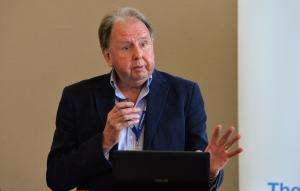A reminder of how the press and politicians misrepresent social work

Published by Professional Social Work magazine - 27 May, 2021
Two recent news stories brought back the emotions of concern and consternation generated by how the media created a distorted story around ‘Baby P’ and social work.
The first was about Daniel Morgan, an investigative reporter who was murdered when caught amongst the links between criminals, allegedly corrupt Metropolitan police officers and Rupert Murdoch’s News of the World newspaper. The independent report into his death and the networks of those involved is now being held back and likely to be censored by Home Secretary Priti Patel.
In my book The Story of Baby P: Setting the Record Straight I give an account of how the parasitical and symbiotic relationships between the police, press and politicians were central to how the tragic death of 17-month-old Peter Connelly became centred on attacking social workers. The killing of Daniel Morgan and subsequent responses can only serve to reinforce concerns about police, press and political networks and relationships.
The second news story is based on another recent independent inquiry report. This tells how Martin Bashir, a BBC reporter, had fraudulent documents created to persuade Princess Diana to allow him to interview her, and how the BBC failed to take appropriate action, even later re-employing the reporter in a senior editorial role.
So what is the link with social work? The BBC chose its home affairs editor, Mark Easton, to lead on the news story about how fake documents were used to lure Princess Diana into the interview.
It was Easton who added fuel to the fire in the ‘Baby P’ story by falsely claiming that Sharon Shoesmith – then director of Haringey’s children’s services where Peter’s death happened – waved graphs stating how well her service was performing.
As Shoesmith noted in her book Learning from Baby P: The politics of blame, fear and denial, Easton also wrongly claimed she refused to say sorry at the press conference held after Peter Connelly’s mother, boyfriend and boyfriend’s brother were found guilty of causing or allowing Peter’s death.
Shoesmith did express sorrow, she did say she was sorry and she did not hand out or wave around a note about the performance of Haringey’s children’s services, which was rated as ‘good’ by Ofsted at the time.
Instead, the council had prepared and passed to reporters a briefing note about its children’s services. This was not unusual. It was common and was the expected and welcomed practice by reporters attending press conferences.
The image, however, created by Easton – for which he has not apologised - was of a director of children’s services who was gloating, callous and arrogant. It played into and ratcheted up the vilification and vicious media portrayal of Shoesmith, which led to hatred and harassment and to serious threats and fear targeted at Shoesmith and her family.
The BBC undertook an enquiry into this misrepresentation by Easton and concluded the misleading reporting was insignificant. Not so for Sharon Shoesmith and her family.
So, in 2021 we have two news stories – about a Daniel and a Diana – that have come together to remind us about the networks and actions of press, police and politicians - and about how social work and social workers have been the fodder caught in the flack that has been generated.
Ray Jones’ is Emeritus Professor of Social Work at Kingston University and St George's, University of London. His book ‘The Story of Baby P: Setting the Record Straight’ is published by Policy Press.
Sharon Shoesmith’s book ‘Learning from Baby P: The politics of blame, fear and denial’ is published by Jessica Kingsley.
